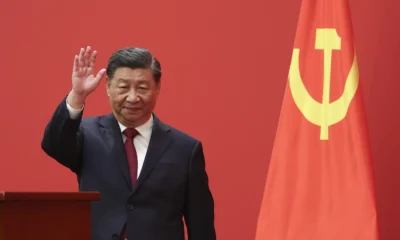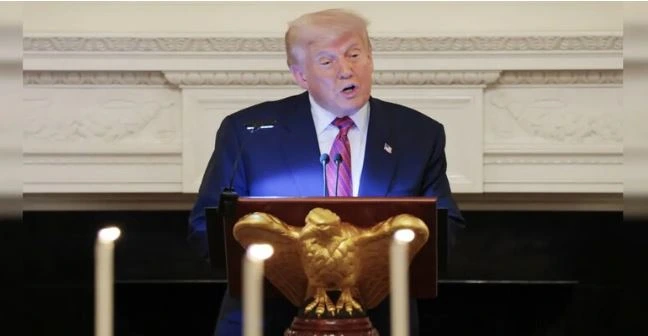[vc_row][vc_column][vc_column_text]Siang river, as Brahmaputra is called in Arunachal Pradesh, has turned black with slag and authorities blame it on Chinese activities in Tibet, said a report from Itanagar, the state’s capital.
Fish in the river have died and officials have declared the waters unfit for consumption. Considered the lifeline of northern Arunachal Pradesh, Siang waters suddenly turning dark black has triggered panic in the frontier state.
“The water can’t be used for any purpose because it contains a cement-like thick material. A lot of fish died one-and-half months ago,” East Siang district deputy commissioner Tamyo Tatak was quoted as saying by Times of India.
He said that the river had turned dark in the last monsoon season, “and we thought that it was because of mud being carried by the river. The rainy season is long over but the river water is still black. From November to February, the water is crystal clear and pure. Even my grandfather has never seen or heard of such a thing happening to the waters of the Siang.”
The Central Water Commission is reported to be examining samples of the water collected from the river.
“It seems that some major cement work is on in the upper reaches of the river in China…may be China is carrying out some deep water boring work. What else could be the reason for such a big river, which becomes the Brahmaputra, remaining black in colour for nearly two months,” Tatak said.
Tatak said he has submitted a report to the Arunachal government about the situation.
Tests by Arunachal Pradesh’s public health engineering department confirmed fears. “Water samples tested in our laboratory using high-tech photometer revealed a turbidity count of 425 against the permissible range of 0-5,” the department’s executive engineer Bimal Welly said.
The All Bogong Students’ Union (E) on Monday wrote to Prime Minister Narendra Modi and sought his immediate intervention in water pollution in Arunachal Pradesh. The students of the local body students’ union also staged a protest against the likely diversion of Siang River to other parts of China by the Chinese government.
Lok Sabha MP from Arunachal East and a former Minister of State for Minority Affairs, Pasighat-based Ninong Ering, had last week written to Prime Minister Narendra Modi about the problem. Pasighat, the headquarters of East Siang, is 560km north-east of Guwahati. The town is dominated by Adi tribe, who revere the river as Aane (mother).
“I have grown up in Pasighat, and I know Siang (water) is so clear in November that you can see the riverbed. Now, the water is not only muddy, it seems there’s cement in it, which could be from the tunnel that China is probably constructing,” the Congress leader said.
In the letter to PM sent last Saturday, Ering wrote that the water has become muddy and cement-like because of massive construction by China of a 1000-km tunnel to divert waters of the Brahmaputra.There is no other reason that the mighty Siang should be dirty and black in the month of November, and that this tragedy has come to pass due to heavy excavation on the Chinese side, he said.
Ering said the report of Tsangpo (Siang/Brahmaputra) being diverted had appeared a few months back. He said the report, which said China is constructing a 1000 km tunnel to divert Brahmaputra water to the Xinjiang province to the Taklamakan desert, is likely to be true despite China’s denials.
“After the report appeared, the river Siang has become muddy and slushy. It is already two months that the Siang has turned black and contaminated. It is an unusual phenomenon. The reason for the river getting dirty is unknown. I have already put questions for discussions in Parliament under rule 377. But since it is not in session, I am requesting you to use your good office to seek the reason of the river being muddy in this season when the water is crystal clear. Construction of a 600-km long tunnel has already started in the Yunnan province as a rehearsal,” Ering said in his letter.
The Siang is the principal constituent river of the Brahmaputra and flows for 1,600 km through southern Tibet as the Yarlung Tsangpo or Yarlung Zangbo before entering India. Siang is also known as Dihang in India, which joins the Lohit after flowing for 230 km. The Dihang joins at about 35 km downstream of Pasighat in East Siang district to form the Brahmaputra.[/vc_column_text][/vc_column][/vc_row]


 India News23 hours ago
India News23 hours ago
 Cricket news22 hours ago
Cricket news22 hours ago
 India News21 hours ago
India News21 hours ago
 Latest world news9 hours ago
Latest world news9 hours ago
 Latest world news9 hours ago
Latest world news9 hours ago
 Latest world news9 hours ago
Latest world news9 hours ago
 India News9 hours ago
India News9 hours ago











